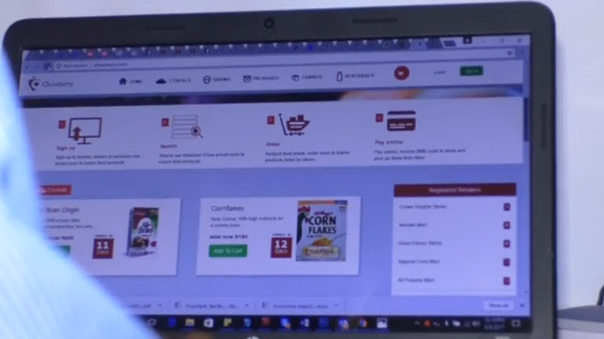
ABUJA, Nigeria (Reuters) — Nigerian entrepreneur, Oscar Ekponimo is working to reduce food waste in Nigeria by getting stores to donate groceries they don’t need to poor families.
The software engineer has developed a web app known as Chowberry which enables charities shop for products that are about to expire at a discounted price.
The organizations later distribute the products to children’s homes and low-income communities.
Ekponimo says his own experiences growing up without enough to eat, inspired him to come up with the technology.
“There was a phase in the family where my dad was temporally ill and out of work and I remember vividly during that time period the challenge at home was access to wholesome meal or quality meal, we could go a day or two without having a quality meal and this was something that affected me psychologically and also impacted on my academics and I always said sometime in the future I would resolve this problem, I would leverage my abilities and capacities to ensure that others don’t go through what I went through,” he said.
About a third of food produced around the world is never eaten because it is spoiled after harvest and during transportation, or thrown away by shops and consumers, according to the United Nations Food and Agriculture Organization (FAO).
The app allows charities access products ranging from cereals, cooking oil, powdered milk to snacks among other groceries.
Throwing out food wastes the water, energy and fuel needed to grow, store and transport it, campaigners say, while discarded food ends up in landfills where it rots, releasing harmful greenhouse gases according to campaigners.
Discarded food often ends up in landfills where it rots, releasing harmful greenhouse gasses, while the water, energy and fuel needed to grow, store and transport it is wasted.
In Nigeria one third of children under 5 are stunted and conflict waged by Boko Haram militants in the northeast has left over 4 million people without access to enough food according to the World Food Program.
When packages have a “use by” or “best by” date, this indicates how long the unopened product will be at its best quality, but it can still be consumed for quite some time after this as long as it is properly stored.
Chowberry wants to exploit this to make a difference in people’s lives.
Perhaps the technology can also contribute towards making use of food with a short shelf life like vegetables. Nigeria produces 1.5 million tonnes of tomatoes annually of which 45 percent perish.
Chizoba Ugwu is one of the beneficiaries receiving groceries today from the Hold my Hands Women and Youth Development Foundation.
She lives in Gbagalape with her three children. Ugwu is a widow and says she has been struggling to fend for the family.
“It is so difficult for me to get food to feed my family because I don’t have work to do, so it was people’s help that I manage to feed my children but now things will be better for me,” she said.
“Well we are looking to impact 50,000 to 100,000 households with affordable nutrition by 2018, by the end of 2018, and the long term goal is to have this platform evolve into a big data platform, and our value proposition is simple, simply plug the waste that is going-on on the food value chain and redirect what could have been wasted to those that need it the most,” said Ekponimo.
Ekponimo won the 2016 Rolex award for enterprise, which recognizes extraordinary projects that benefit communities around the world. He is working to develop his app further to help cut waste in more parts of the country and enable retailers save money at the same time.








